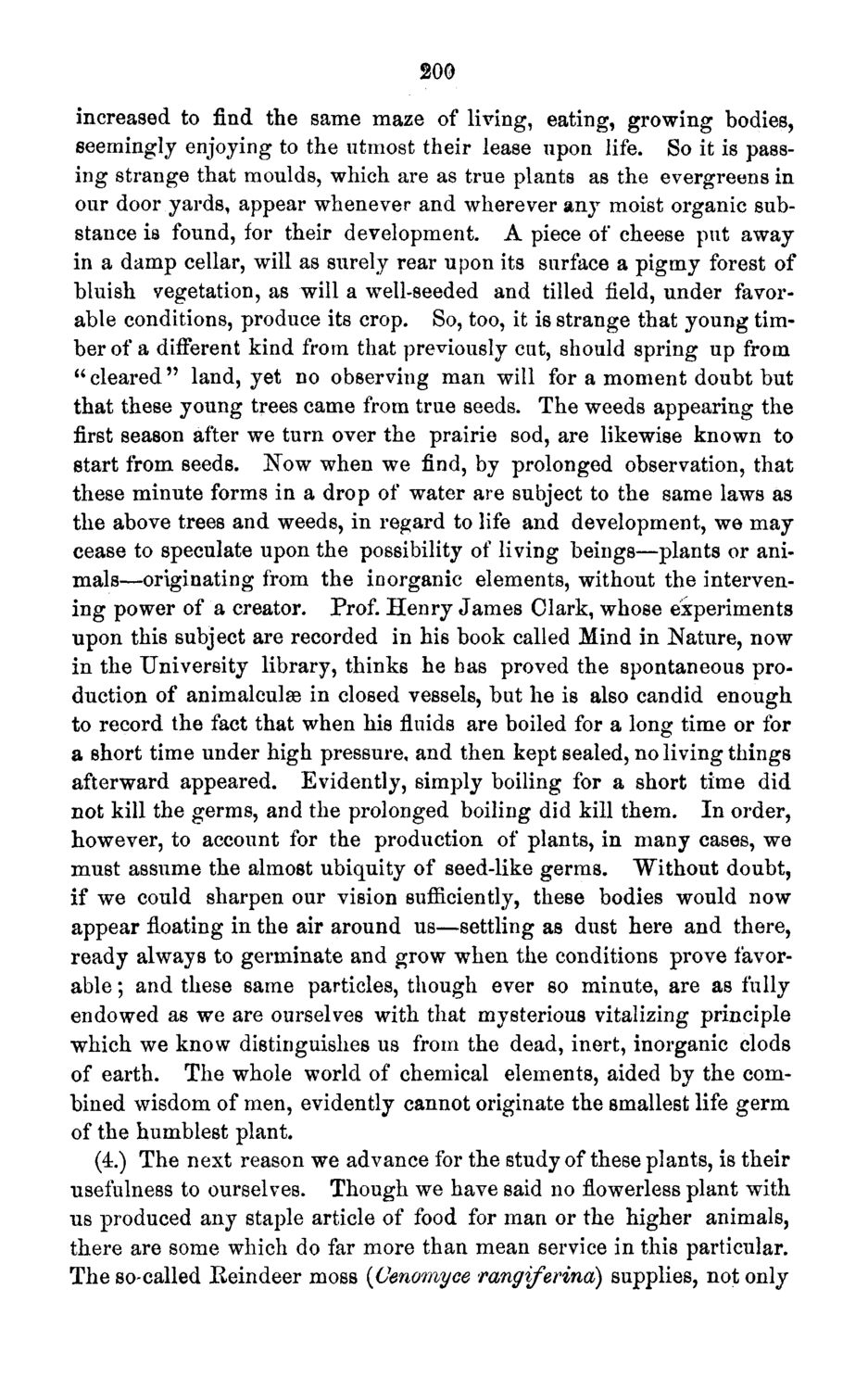| |
| |
Caption: Board of Trustees Minutes - 1871
This is a reduced-resolution page image for fast online browsing.

EXTRACTED TEXT FROM PAGE:
200 increased to find the same maze of living, eating, growing bodies, seemingly enjoying to the utmost their lease upon life. So it is passing strange that moulds, which are as true plants as the evergreens in our door yards, appear whenever and wherever any moist organic substance is found, for their development. A piece of cheese put away in a damp cellar, will as surely rear upon its surface a pigmy forest of bluish vegetation, as will a well-seeded and tilled field, under favorable conditions, produce its crop. So, too, it is strange that young timber of a different kind from that previously cut, should spring up from " cleared" land, yet no observing man will for a moment doubt but that these young trees came from true seeds. The weeds appearing the first season after we turn over the prairie sod, are likewise known to start from seeds. Now when we find, by prolonged observation, that these minute forms in a drop of water are subject to the same laws as the above trees and weeds, in regard to life and development, we may cease to speculate upon the possibility of living beings—plants or animals—originating from the inorganic elements, without the intervening power of a creator. Prof. Henry James Clark, whose experiments upon this subject are recorded in his book called Mind in Nature, now in the University library, thinks he has proved the spontaneous production of animalcule in closed vessels, but he is also candid enough to record the fact that when his fluids are boiled for a long time or for a short time under high pressure, and then kept sealed, no living things afterward appeared. Evidently, simply boiling for a short time did not kill the germs, and the prolonged boiling did kill them. In order, however, to account for the production of plants, in many cases, we must assume the almost ubiquity of seed-like germs. Without doubt, if we could sharpen our vision sufficiently, these bodies would now appear floating in the air around us—settling as dust here and there, ready always to germinate and grow when the conditions prove favorable ; and these same particles, though ever so minute, are as fully endowed as we are ourselves with that mysterious vitalizing principle which we know distinguishes us from the dead, inert, inorganic clods of earth. The whole world of chemical elements, aided by the combined wisdom of men, evidently cannot originate the smallest life germ of the humblest plant. (4.) The next reason we advance for the study of these plants, is their usefulness to ourselves. Though we have said no flowerless plant with us produced any staple article of food for man or the higher animals, there are some which do far more than mean service in this particular. The so-called Reindeer moss (Oenomyce rangiferina) supplies, not only
| |